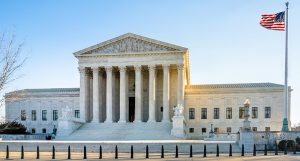 Last year the Supreme court finally decided to weigh in on the use of a suspect’s cell phone record to track his travels. The more the digital world is taking over, the more police officers around the nation are trying to find the best ways to make use of technology in capturing and convicting criminals. But, it seems there is a limit to how far this is allowed to go, and four months is just too long.
Last year the Supreme court finally decided to weigh in on the use of a suspect’s cell phone record to track his travels. The more the digital world is taking over, the more police officers around the nation are trying to find the best ways to make use of technology in capturing and convicting criminals. But, it seems there is a limit to how far this is allowed to go, and four months is just too long.
Following an intense oral argument, all nine of the Justices appeared to be divided along what can only be described as unusual lines. This being said, most of the Justices seemed to agree that using a suspect’s cell phone to track their travels for 127 days constituted a violation of their privacy and amounted to no less than unreasonable search.
At the time of the discussion, it remained unclear as to whether the Court would simply decide to limit how long law enforcement officers would be permitted to use a suspect’s cell phone records to track him or if they would simply rule that all cell phone records are private and as such could not be used by any member of law enforcement at any level with an appropriate warrant.
Hampering Law Enforcement Efforts
According to the U.S. government, deciding against allowing open access to this information could seriously hamper investigations into events such as abducted children, bomb threats, murders, or robberies when the suspect is unknown. In situations such as this, investigators often rely on the data they can obtain from cell phone tower records to help narrow down the list of people who were in the area at the time of the crime.
The problem is that officers are not likely to have enough information available to support probable cause and thus be able to obtain a warrant for the suspect in mind and of course, his cell phone. Prior to this, officers would need to obtain a warrant before they could listen in on phone calls made by suspects and more recently view any downloaded content on their smartphones. All this is protected under the 4th Amendment.
Yet at the same time, the courts have allowed officers to access bank and phone records without the need for a warrant. They say this is because the customers knowingly made the calls and wrote the checks, and the records were all held by a private company, not the U.S. government. Today’s systems allow for 24/7 tracking that can easily be seen as an invasion of privacy such as protected under the 4th Amendment.
The battle for who is right in this situation is likely to rage on as both sides have valid points. It seems that as technology continues to advance, private citizens are seeing much of their privacy, either disappearing or becoming in jeopardy of being lost in the shuffle. Yet at the same time, law enforcement officers need to have access to the latest technology if they are to be able to do their jobs and protect those same citizens who are worried about their privacy. No final decision has yet been made, but is expected to come soon.
